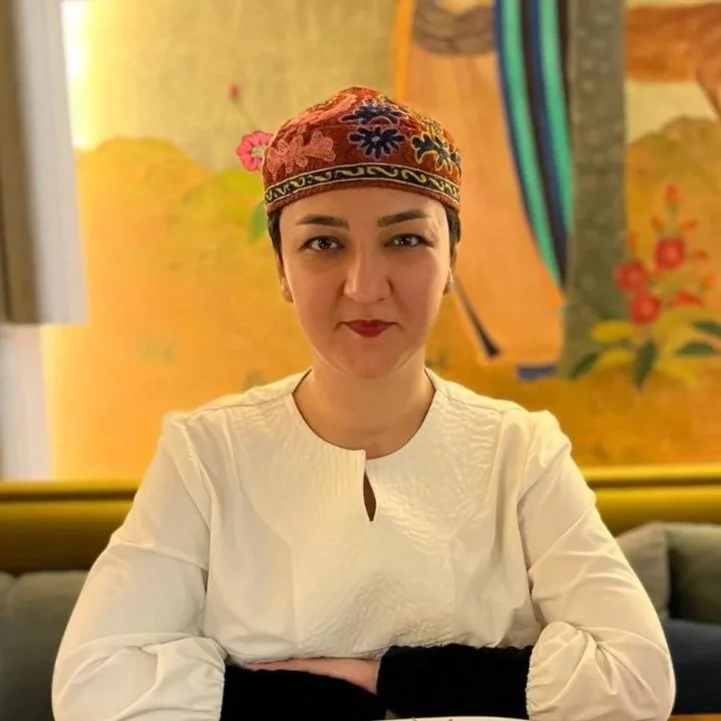Indigenous Peoples must shape climate and environmental agendas: Hanieh Moghani addresses UNFSS+4
Indigenous peoples’ customs and practices are deeply rooted in their ancestral lands. They are traditional stewards of ecosystem health and of soil health.
At the recent UN Food Systems Stocktake (UNFSS +4) in Addis Ababa, Ethiopia, Hanieh Moghani, Expert Member of the United Nations Permanent Forum on Indigenous Issues, addressed audiences at a side event titled From Riyadh to Mongolia: Bridging Action for Agroecology and Soil Health to Transform Food Systems. The purpose of the event was to explore how agroecology and soil health can serve as transformative levers to deliver more inclusive, resilient, and sustainable food systems. Central to this conversation is the role of communities, and especially, Indigenous Peoples, in the climate and environmental agendas.
Hanieh delivered an impactful speech on the imperative for Indigenous Peoples to not only contribute to global agendas, but to lead the conversation. Her inspiring words on the connection between Indigenous Peoples and soil health are a launchpad for action and will underpin the work of CA4SH in the coming months a we look toward UNFCCC COP30 in 2025 and UNCCD COP17 in 2026.
CA4SH is pleased to share Hanieh’s speech below, so that her words can continue to move stakeholders to take action together.
Hanieh Moghani is an expert member of the United Nations Permanent Forum on Indigenous Issues (UNPFII), regional coordinator at ICCA Consortium and founding member of International Environmental Guardians (IEG), and senior legal advisor at CENESTA. She is an Indigenous advocate, legal counsel, community facilitator, educator, and activist working at the interface of science, policy, and society.
Dears,
For Indigenous Peoples, soil is not merely the ground beneath our feet — it is the foundation of life itself. It is where our food is born, where our medicines grow, where our ancestors rest, and where our stories are rooted. Our languages, ceremonies, and governance systems are all intertwined with the soil.
For millennia, Indigenous Peoples — nomadic and semi-nomadic herders, shifting cultivators, pastoralists — have read the soil like a living book. We know when it breathes, when it hungers, when it heals. Our knowledge of soil health is not written in textbooks — it is carried in oral traditions, songs, and daily practices that have kept ecosystems alive for generations.
Yet today, as soils degrade and food systems falter, the world is beginning to rediscover what we have always known: healthy soils are inseparable from Indigenous stewardship.
This year marks a historic turning point. For the first time in the history of the UN Convention to Combat Desertification, an Indigenous Peoples’ Caucus has been created under the leadership of the former chair of the UN Permanent Forum on Indigenous Issues, Hindou Omarou Ibrahim, who is an Indigenous nomadic pastoralist herself and dozens of us were there. This is not just symbolic — it means Indigenous voices will no longer be invited to speak after decisions are made. We are here to shape those decisions.
This is one of the recommendations of the UNPFII International expert group meeting on the theme “Recognition of Indigenous Peoples’ rights in the context of the climate crisis, biodiversity governance and territorial integrity: focusing on nomadic and semi-nomadic peoples, including pastoralists and shifting cultivators.”
The Economic and Social Council decides to authorize a three-day international expert group meeting on the theme “Recognition of Indigenous Peoples’ rights in the context of the climate crisis, biodiversity governance and territorial integrity: focusing on nomadic and semi-nomadic peoples, including pastoralists and shifting cultivators.”
The Permanent Forum calls upon Mongolia, FAO and the Convention to Combat Desertification secretariat to ensure the meaningful participation of representatives of Indigenous pastoralists in the International Year of Rangelands and Pastoralism (General Assembly resolution 76/253) and in all related events and processes. Adequate and sustained funding must be secured for Indigenous Peoples’ participation.
As we move from Riyadh to Mongolia, we must ensure Indigenous Peoples are not just participants, but partners. Their centuries of experience managing rangelands and soils are essential to the transformation we seek.
And as we gather here at UNFSS+4, I want to highlight the importance of building a strong bridge between the Coalition of Action for Soil Health and the Indigenous Peoples’ Food Systems Coalition. These two coalitions must not operate in parallel — they must walk together, because the health of soil and the vitality of Indigenous food systems are inseparable.
Here, in these side events, the real changes are happening — with peoples themselves exchanging knowledge, connecting with each other, and shaping solutions that no single institution or government could create alone.
If we keep nurturing these connections, if we keep centering Indigenous knowledge and rights in these coalitions, then we will not just speak of transformation — we will live it.
On behalf of the Indigenous Peoples’ Food Systems Coalition, I invite you — governments, agencies, and partners — to join us in co-creating this future.
Because if we heal the soil together, honoring the knowledge and rights of those who have protected it for generations, we will not only transform food systems. We will transform the future.
Thank you.

